
By the time commercial radio began in 1973, the UK had been listening to continental and offshore commercial stations for more than 40 years. The most popular and enduring source was Radio Luxembourg, which began an English service in 1933. Only during the war years were listeners denied a commercial alternative to the BBC.
Postwar, Luxembourg continued to secure large audiences, albeit in the evening only and using a famously unreliable signal on 208 metres medium wave. As teenage pop music gained in popularity from the later 1950s, Luxembourg concentrated on this material. The BBC's output of pop music was meagre, partly due to its limited allocation of "needle time", the amount of commercially recorded music that it could play.
Several entrepreneurs rightly anticipated a demand for pop music broadcast throughout the day. Ships moored in international waters could ignore the constraints on the BBC. Radio Caroline began in 1964 and, within weeks, its audience was bigger than that of all three BBC networks combined. At one point, there were 11 "pirate" radio stations broadcasting from offshore locations. Despite their enormous popularity, complaints of interference from legitimate European broadcasters on "stolen" wavelengths prompted their closure in 1967. Despite their bravado, both Caroline ships were seized by creditors and went off air in March 1968.
While Harold Wilson's Labour government was not interested in the demand for legitimate "free" radio, the Conservative opposition had a more favourable attitude. It had been a Conservative government that ended the BBC's television monopoly by allowing a commercial alternative in 1955.
Esta historia es de la edición October 2023 de Best of British.
Comience su prueba gratuita de Magzter GOLD de 7 días para acceder a miles de historias premium seleccionadas y a más de 9,000 revistas y periódicos.
Ya eres suscriptor ? Conectar
Esta historia es de la edición October 2023 de Best of British.
Comience su prueba gratuita de Magzter GOLD de 7 días para acceder a miles de historias premium seleccionadas y a más de 9,000 revistas y periódicos.
Ya eres suscriptor? Conectar
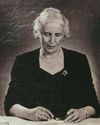
Animal Magic
Hilary Middleton recalls a children's author whose tales are still enjoyed today
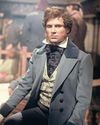
BACK IN TIME WITH COLIN BAKER
BoB's very own Time Lord prepares for an alternative to panto, recalls his early reading choices and having his scenes cut from two cutting edge comedies

Marvels in Miniature
Claire Saul learns about the exquisite works on display at a new exhibition being held at a historic Georgian mansion
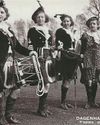
The Last Post
Michael Foley witnessed the end of an era

The Box of Delights
Chris Hallam remembers how his Christmas 40 years ago was lit up by a magical television drama

The Queen of Stage and Screen
Chris Hallam pays tribute to actress Dame Maggie Smith
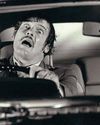
Other 07
Jonathan Sothcott looks at the seven Sir Roger Moore films that you should have in your collection

In the Best Possible Taste
Derek Lamb remembers the wireless wizardry of Kenny Everett

POSTCARD FROM BUCKINGHAMSHIRE
Bob Barton remembers a ghostly train journey, enjoys some wassailing and fulfils a long-held ambition of attending a lawnmower festival
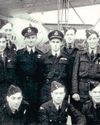
MERCY MISSION
John Greeves recounts the remarkable exploits of Sunderland flying boat T9114